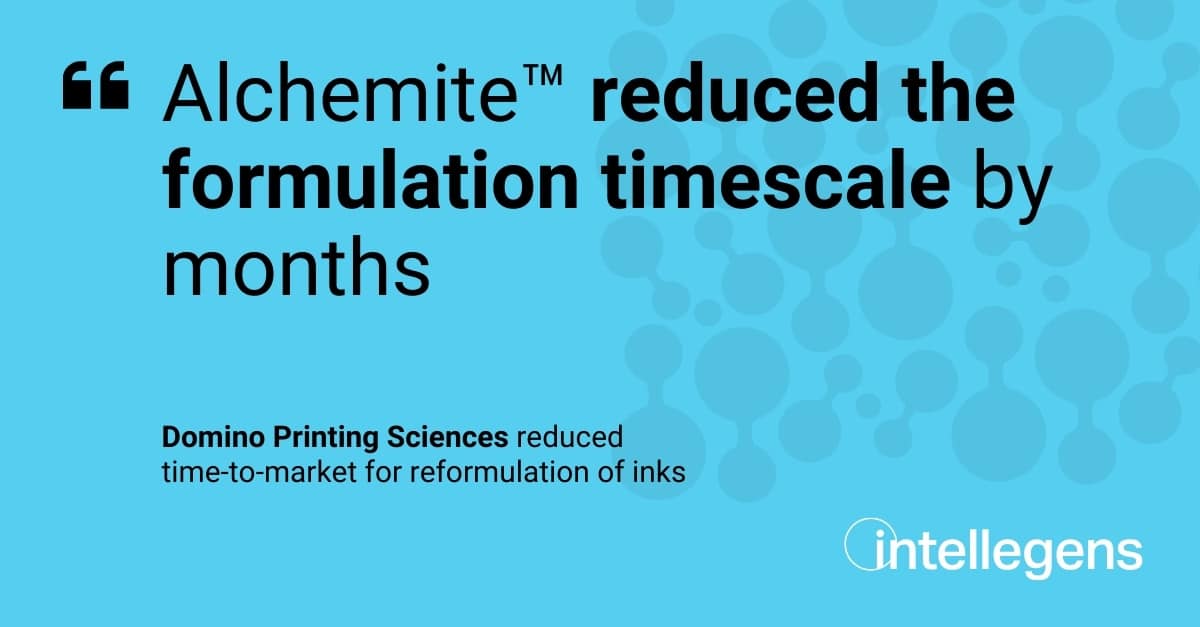Case Study with Domino
- Optimise formulations by maximising insights from carefully chosen experiments.
- Make more efficient use of lab capacity, by reducing the number of experiments.
- Decrease time-to-market, cutting experimental timescales from months to minutes.

Summary
Empirical analysis is typically the most resource-intensive part of the formulation R&D process – so much so that, in recent years, virtual experiments have become a topic of major interest. These allow researchers to use existing empirical data to predict and validate experimental outcomes, and are particularly useful when lab access is limited, as during the COVID-19 pandemic. In this case study, Domino Printing Sciences (Domino) used Alchemite™ advanced machine learning to leverage historical data, obtaining several novel ink formulations, some of which were later validated via physical experimentation.
Dr Andrew Clifton, Director of Marking Materials and Test Engineering Team at Domino commented: “We were impressed with the ability of Alchemite™ to identify novel formulations quickly and accurately. This enabled us to make the most of limited lab resources and continue innovating during the COVID-19 lockdown.”
Find out more
Phillip Woolston from Domino Printing Sciences presented on this case study at an Intellegens webinar.
Related information


